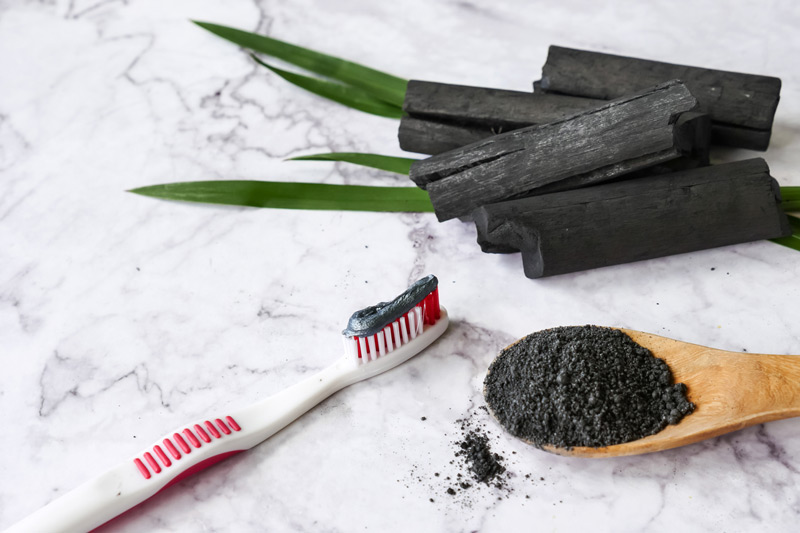Do Home Remedies for Tooth Decay Work?

The Process of Tooth Decay
By now, everyone is most likely aware of the fact that sugar is bad for our teeth. The reason for this is that the harmful bacteria that live in our mouth convert any sugar into acid, which is very bad for the teeth—especially in large quantities. In hindsight, tooth decay is an infection; the acids that are produced from the sugar will eventually cause cavities which are small holes in the tooth. The first signs of tooth decay are the appearance of white spots on the tooth. This indicates a loss of minerals but, at this point, it can be repaired. The fluoride in toothpaste and even the natural production of saliva will help to restore the lost minerals preventing the decay from getting worse. The longer that cavities are left untreated, the worse it will get. Decay will eventually spread to the root of the tooth which will result in either tooth extraction or root canal.
Home Remedies for Tooth Decay
There is a lot of debate surrounding whether or not home remedies actually work for cavities and tooth decay. In the dentistry world, there is certainly a divide where some dentistry professionals believe that particular home remedies will work and others believe they won’t. Below, we have disclosed specific home remedies or techniques that have been proven to help prevent tooth decay.
Oil Pulling
Oil pulling dates back hundreds of years and is considered one of the most effective remedies for killing harmful bacteria in the mouth. Some people swear by oil pulling, and when used regularly a large number of people have reported how their oral health had significantly improved. The favored oils to use for oil pulling is coconut and sesame. These both have very strong antibacterial properties and can be especially beneficial for helping to treat gum disease and gingivitis.
Oil pulling is basically just using the preferred oil as a mouthwash. Rather than a quick swish around the mouth, oil pulling requires keeping the oil in the mouth for about 20 minutes. This method can be used morning and night prior to brushing.
Vitamin D
The effects that vitamin D has on the mouth plays an important part of oral health. Both calcium and phosphate that is found in foods are absorbed because of vitamin D. A few studies have shown that generous amounts of vitamin D in the diet will help strengthen the teeth and reduce the likeliness of cavities. The most common sources of vitamin D is from the sun and dairy products such as yogurt and milk.
Licorice Root

Chewing Sugar-free Gum
When chewing sugar-free gum, your mouth naturally produces more saliva which washes away harmful bacteria from the mouth. The artificial sweetener xylitol that is contained in some sugar-free gum has been shown to increase the pH level of plaque as well as reduce bacteria. Small clinical trials have been done on xylitol, and the compound is known as casein phosphopeptide-amorphous calcium phosphate commonly referred to as CPP-ACP. The trials have shown CPP-ACP to be even more effective at reducing bacteria from the mouth than gum containing xylitol. Chewing sugar-free gum is recommended after every meal so that leftover food particles can be washed away from the mouth.
A Low Sugar Diet
The subject of sugar being bad for the teeth is a well-known fact. Not to sound like an old record but sugar really does speed up tooth decay or promote it. By having a balanced and low sugar diet not only will your mouth and teeth be healthier but so will the rest of your body. What many people don’t realize is that the harmful bacteria in the mouth can also impact other areas of the body. Understandably, people will want to indulge in high-sugar foods or sugary treats every now and then, but it is important to be aware of the effect that this can have.
So, Do Home Remedies Actually Work?
There is a multitude of home remedies that people use to improve their oral health and prevent tooth decay, and while certain studies have shown that they are effective, the truth is that further testing is required. That isn’t to say that these types of techniques and remedies don’t work it simply means that more testing will help to establish just how much these remedies can help. The bottom line is that while we may not fully understand the effectiveness of these home remedies there really isn’t any harm in using them. For those who have a clean bill of health where teeth and gums are concerned, using home remedies can only work for you in terms of preventing tooth decay and gum disease.
Whether or not you are a fan of home remedies for tooth decay make sure that you keep up with regular dental appointments. A dental check will enable you to catch tooth decay early and guide you on the best way to approach it. If you have never tried a home remedy before, there’s no reason that you shouldn’t include some into your regular oral hygiene routine. If you have concerns regarding your teeth always book in for a dental appointment to ensure that there aren’t any serious issues.
Relate Posts to Read:
Hole in Tooth? What You Need to Know
